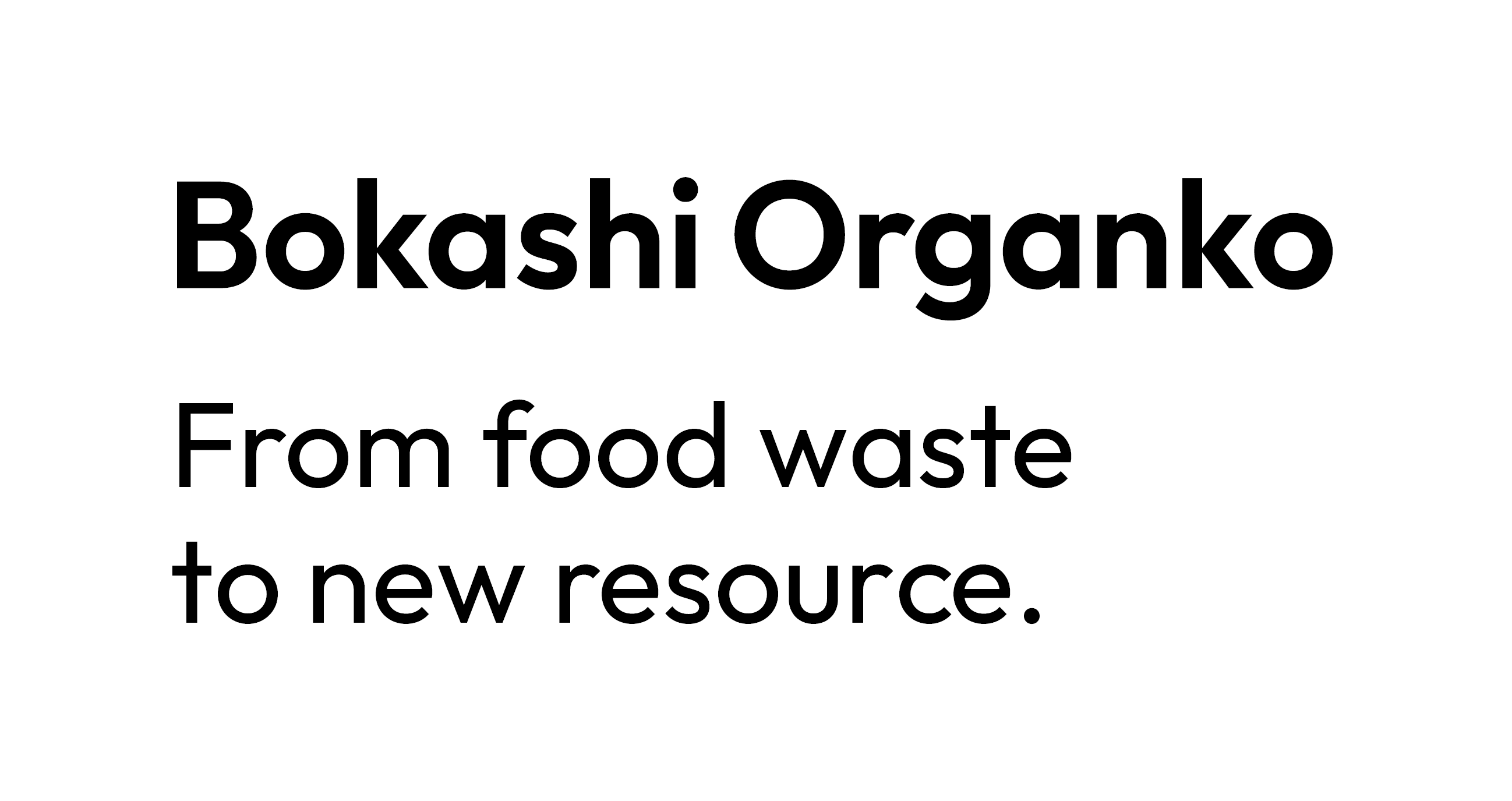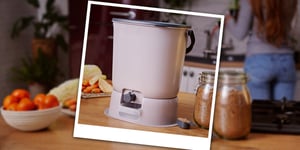If you haven’t yet implemented the bokashi method into your household, you most likely don’t know what its benefits are. After all, the benefits of composting food waste with this user- and environmentally-friendly method are so powerful that everyone who really knows them takes action. So, without further ado, let’s take a look at the main benefits of composting food waste with this ancient Asian method.
Moving forward, we’ll break the benefits of composting food waste into those for users and into those for the environment. However, it’s worth noting that what is good for the environment is also good for people, at least in the long run. This means that implementing bokashi composting in your household is a win-win move. And, since we believe that our environment needs us more than ever before to do the right thing, it’s only fair that we start with the benefits of composting food waste for the environment.
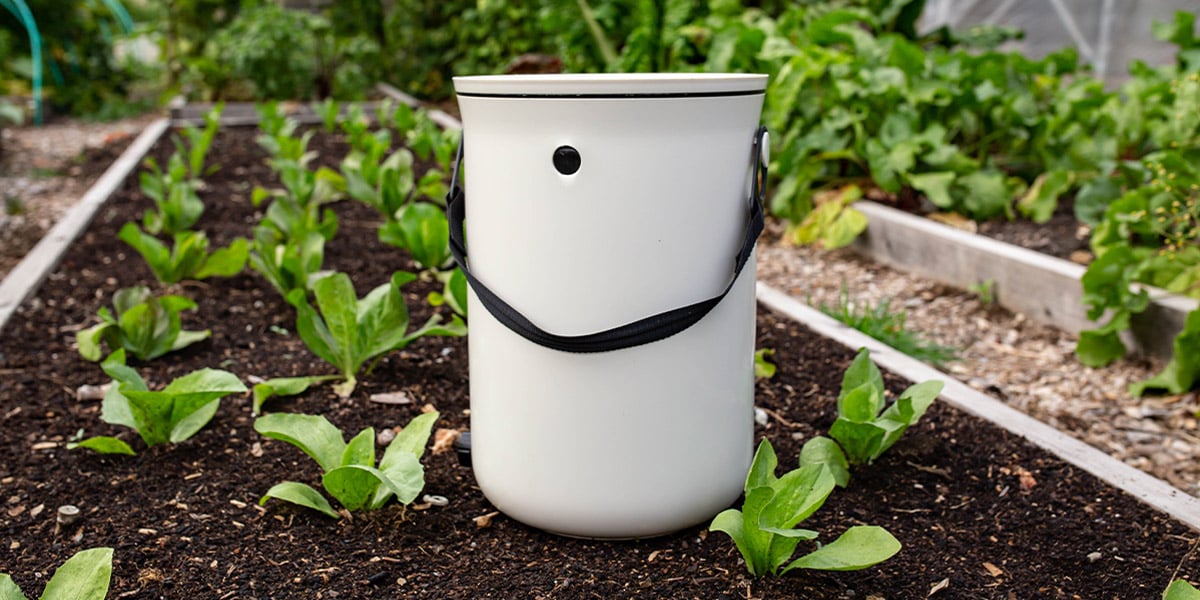
Benefits of composting food waste for the environment
Most people aren’t aware of the horrific fact that on average developed countries waste more than one-third of the food we produce. What is more, the majority of food is wasted by households. And, most of this type of waste ends up in landfills. There, it rots and thus pollutes air, soil, and water. That is why the benefits of composting food waste for the environment are so important and they are as follows:
- Composting food waste converts nutrients that would otherwise be wasted into new resources. Using the bokashi method to do so, produces close to zero carbon emissions (more than 20 times less than traditional composting).
- With bokashi composting, every household can responsibly collect its kitchen waste; this means no more food waste in landfills.
- According to some of the latest analyses, food waste is responsible for up to 10 % of global greenhouse gas (GHG) emissions. With bokashi composting, we can immediately repurpose most of this waste and thus reduce GHG emissions.
- With fewer (and eventually) no food waste in landfills, we ensure that groundwater doesn’t get polluted.
- The bokashi method enables us to produce quality compost about three times faster than traditional composting.
- With quality compost, we get to implement organic gardening and farming. After all, compost produced with bokashi composters is extremely rich in effective microorganisms, which then form a protective microbiome around plants and the soil. Thus, plants do not require artificial and harmful chemicals to survive; in fact, they can actually thrive in a healthy environment.
All-in-all, every negative impact that food waste has on the environment becomes a benefit of composting food waste when a proper solution is deployed. And, currently, aside from reducing waste in the first place, bokashi composting is by far the best solution for this global issue.
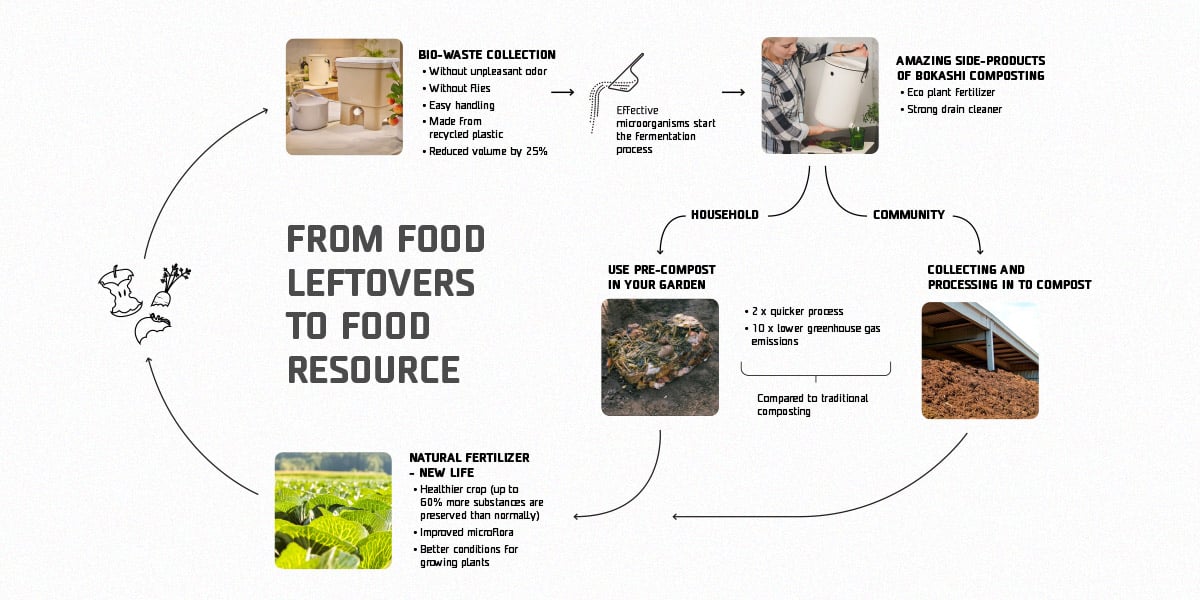
Benefits of composting food waste for users
Handling organic waste indoors is usually quite a messy process. It involves unpleasant smells, flies, and other pests, not to mention that it can be extremely tricky to do it in an environmentally-friendly way. After all, using a plastic bag is not an option, and using compostable bags is also not the best use of resources. Plus, those bags tend to break at the most unpleasant moments.
Luckily, you can overcome all those challenges when you opt in for a high-quality bokashi composting bin. So, before we list the benefits of composting food waste for users, let’s make sure you all know what a high-quality bokashi composter is.
What makes a high-quality bokashi composter?
Let’s start by pointing out that bokashi composting is in fact fermentation. And, if you know a thing or two about this form of organic material decomposition, you know it requires airtight conditions. So, a reliable bokashi bin must ensure airtight conditions.
Secondly, a side product of fermentation is fermentation liquid, also known as bokashi juice. Thus, a proper indoor composter will also allow you to easily collect this liquid to ensure optimal condition. Of course, you can then use this liquid (undiluted) to clean drains or as a natural fertilizer for your plants (diluted with water in a 1:200 ratio).
Thirdly, a user-friendly bokashi composting bin must be easy to handle. This means it has a proper lid, ergonomic handles, it’s easy to carry, etc. In addition, a high-quality indoor composter must also be easy to clean - perhaps even dishwasher-safe. Moreover, it should also be built to last. Plus, ideally, it should be made from materials and via processes that do not put an additional burden on the environment. For instance, they could be produced out of recycled and recyclable plastics. Luckily, Bokashi Organko bins cover all these aspects and more.
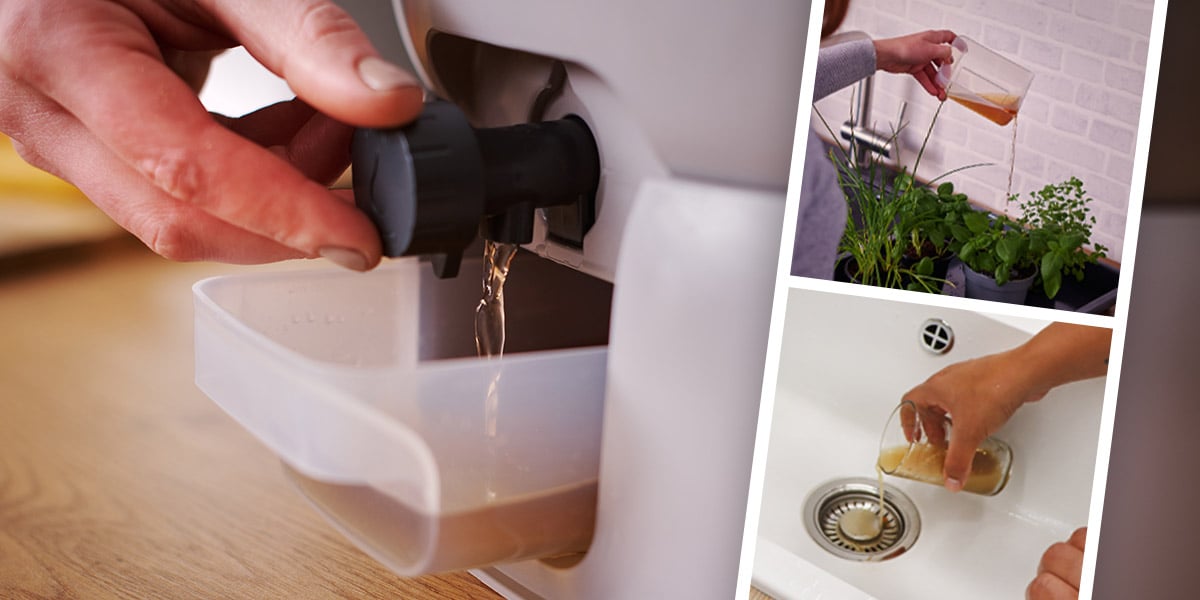
Main benefits of composting food waste with a high-quality composter for users
- No flies or other pests related to your organic waste.
- No unpleasant smell coming from your organic waste bin.
- No need to take your organic waste outside daily.
- A chance to start processing your organic waste in the comfort of your kitchen.
- Produce your own high-quality compost.
- Produce your natural drain cleaner/organic fertilizer.
- Easily collect all organic waste in a single bin. Proper bokashi composters are able to handle meat, dairy, bones, coffee grounds, citrus peels, and even onions. Check one of our past posts to learn more about what is allowed to put into bokashi bin and what should you avoid.
- A piece of mind knowing that you can repurpose your food waste on occasions when you can’t put your leftovers to better use.
Now that you’ve learned about all the benefits of composting food waste with the bokashi method, make sure to take action. In case your household doesn’t yet have a proper bokashi bin, get one as soon as possible. Then, make sure to actually use it. Next, use the resources that it produces for your gardens or potted plants. However, if you live in an urban area, make sure to use your knowledge to inspire your fellow citizens to join forces. After all, this is how you can help close the #bokashiloop.

